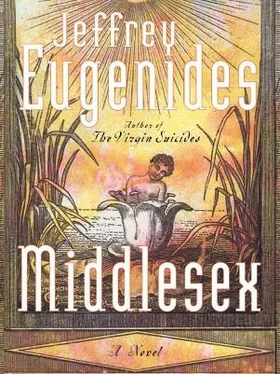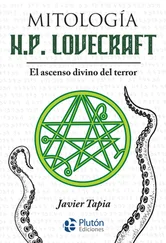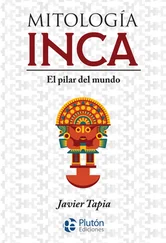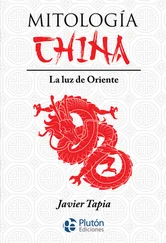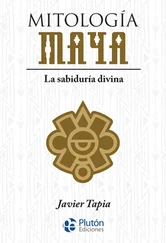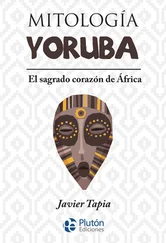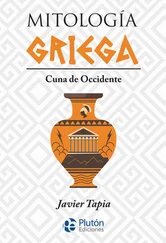Milton played his instrument with the same fingers he used for the Boy Scout salute, but his thoughts were anything but wholesome. Breathing hard, bent over Tessie with trembling concentration, he moved the clarinet in circles, like a snake charmer. And Tessie was a cobra, mesmerized, tamed, ravished by the sound. Finally, one afternoon when they were all alone, Tessie, his proper cousin, lay down on her back. She crossed one arm over her face. “Where should I play?” whispered Milton, his mouth feeling too dry to play anything. Tessie undid a button on her blouse and in a strangled voice said, “My stomach.”
“I don’t know a song about a stomach,” Milton ventured.
“My ribs, then.”
“I don’t know any songs about ribs.”
“My sternum?”
“Nobody ever wrote a song about a sternum, Tess.”
She undid more buttons, her eyes closed. And in barely a whisper: “How about this?”
“That one I know,” said Milton.
When he couldn’t play against Tessie’s skin, Milton opened the window of his bedroom and serenaded her from afar. Sometimes he called the boardinghouse and asked Mrs. O’Toole if he could speak with Theodora. “Minute,” Mrs. O’Toole said, and shouted up the stairs, “Phone for Zizmo!” Milton heard the sound of feet running down the stairs and then Tessie’s voice saying hello. And he began playing his clarinet into the phone.
(Years later, my mother would recall the days when she was wooed by clarinet. “Your father couldn’t play very well. Two or three songs. That was it.” “Whaddya mean?” Milton would protest. “I had a whole repertoire.” He’d begin to whistle “Begin the Beguine,” warbling the melody to evoke a clarinet’s vibrato and fingering the air. “Why don’t you serenade me anymore?” Tessie would ask. But Milton had something else on his mind: “Whatever happened to that old clarinet of mine?” And then Tessie: “How should I know? You expect me to keep track of everything?” “Is it down in the basement?” “Maybe I threw it out!” “You threw it out! What the hell did you do that for!” “What are you going to do, Milt, practice up? You couldn’t play the darn thing back then.”)
All love serenades must come to an end. But in 1944, there was no stop to the music. By July, when the telephone rang at the O’Toole Boardinghouse, there was sometimes another kind of love song issuing from the earpiece: “Kyrie eleison, Kyrie eleison.” A soft voice, nearly as feminine as Tessie’s own, cooing into a phone a few blocks away. The singing continued for a minute at least. And then Michael Antoniou would ask, “How was that?”
“That was swell,” my mother said.
“It was?”
“Just like in church. You could have fooled me.”
Which brings me to the final complication in that overplotted year. Worried about what Milton and Tessie were getting up to, my grandmother wasn’t only trying to marry Milton off to somebody else. By that summer she had a husband picked out for Tessie, too.
Michael Antoniou—Father Mike, as he would come to be known in our family—was at that time a seminarian at the Greek Orthodox Holy Cross Theological School out in Pomfret, Connecticut. Back home for the summer, he had been paying a lot of attention to Tessie Zizmo. In 1933, Assumption Church had moved out of its quarters in the storefront on Hart Street. Now the congregation had a real church, on Vernor Highway just off Beniteau. The church was made of yellow brick. It wore three dove-gray domes, like caps, and had a basement for socializing. During coffee hour, Michael Antoniou told Tessie what it was like out at Holy Cross and educated her about the lesser-known aspects of Greek Orthodoxy. He told her about the monks of Mount Athos, who in their zeal for purity banned not only women from their island monastery but the females of every other species, too. There were no female birds on Mount Athos, no female snakes, no female dogs or cats. “A little too strict for me,” Michael Antoniou said, smiling meaningfully at Tessie. “I just want to be a parish priest. Married with kids.” My mother wasn’t surprised that he showed interest in her. Being short herself, she was used to short guys asking her to dance. She didn’t like being chosen by virtue of her height, but Michael Antoniou was persistent. And he might not have been pursuing her because she was the only girl shorter than he was. He might have been responding to the need in Tessie’s eyes, her desperate yearning to believe that there was something instead of nothing.
Desdemona seized her opportunity. “Mikey is good Greek boy, nice boy,” she said to Tessie. “And going to be a priest!” And to Michael Antoniou: “Tessie is small but she is strong. How many plates you think she can carry, Father Mike?” “I’m not a father yet, Mrs. Stephanides.” “Please, how many?” “Six?” “That all you think? Six?” And now holding up two hands: “Ten! Ten plates Tessie can carry. Never break a thing.”
She began inviting Michael Antoniou over for Sunday dinner. The presence of the seminarian inhibited Tessie, who no longer wandered upstairs for private swing sessions. Milton, growing surly at this new development, threw barbs across the dinner table. “I guess it must be a lot harder to be a priest over here in America, huh?”
“How do you mean?” Michael Antoniou asked.
“I just mean that over in the old country people aren’t too well educated,” Milton said. “They’ll believe whatever stories the priests tell them. Here it’s different. You can go to college and learn to think for yourself.”
“The Church doesn’t want people not to think,” Michael replied without taking offense. “The Church believes that thinking will take a person only so far. Where thinking ends, revelation begins.”
“Chrysostomos!” Desdemona exclaimed. “Father Mike, you have a mouth of gold.”
But Milton persisted, “I’d say where thinking ends, stupidity begins.”
“That’s how people live, Milt”—Michael Antoniou again, still kindly, gently—“by telling stories. What’s the first thing a kid says when he learns how to talk? ‘Tell me a story.’ That’s how we understand who we are, where we come from. Stories are everything. And what story does the Church have to tell? That’s easy. It’s the greatest story ever told.”
My mother, listening to this debate, couldn’t fail to notice the stark contrasts between her two suitors. On one side, faith; on the other, skepticism. On one side, kindness; on the other, hostility. An admittedly short though pleasant-looking young man against a scrawny, pimply, 4-F boy with circles under his eyes like a hungry wolf. Michael Antoniou hadn’t so much as tried to kiss Tessie, whereas Milton had led her astray with a woodwind. D flats and A sharps licking at her like so many tongues of flame, here behind the knee, up here on the neck, right below the navel . . . the inventory filled her with shame. Later that afternoon, Milton cornered her. “I got a new song for you, Tess. Just learned it today.” But Tessie told him, “Get away.” “Why? What’s the matter?” “It’s . . . it’s . . .”—she tried to think of the most damning pronouncement—“It’s not nice!” “That’s not what you said last week.” Milton waved the clarinet, adjusting the reed with a wink, until Tessie, finally: “I don’t want to do that anymore! Do you understand? Leave me alone!”
Every Saturday for the remainder of the summer, Michael Antoniou came by O’Toole’s to pick Tessie up. Taking her purse as they walked along, he swung it by its strap, pretending it was a censer. “You have to do it just right,” he told her. “If you don’t swing it hard enough, the chain buckles and the embers fall out.” On their way down the street, my mother tried to ignore her embarrassment at being seen in public with a man swinging a purse. At the drugstore soda fountain, she watched him tuck a napkin into his shirt collar before eating his sundae. Instead of popping the cherry into his mouth as Milton would have done, Michael Antoniou always offered it to her. Later, seeing her home, he squeezed her hand and looked sincerely into her eyes. “Thank you for another enjoyable afternoon. See you in church tomorrow.” Then he walked away, folding his hands behind his back. Practicing how to walk like a priest, too.
Читать дальше
Конец ознакомительного отрывка
Купить книгу
